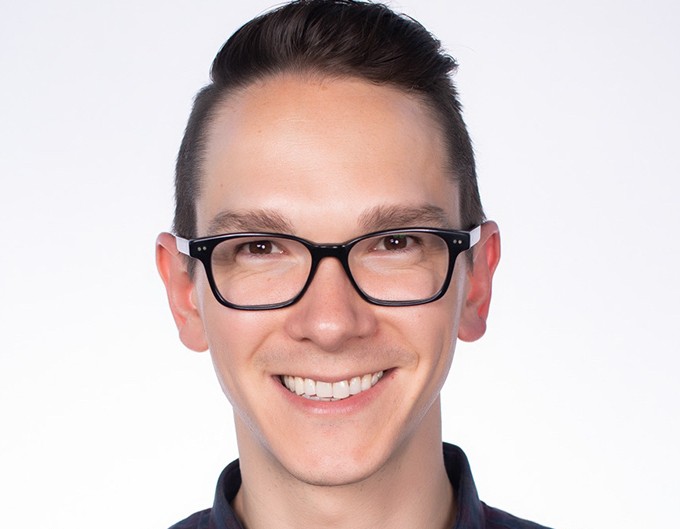Professor Mark Jeffrey (EngSci 0T9, ECE MASc 1T1) is one of four new faculty members joining The Edward S. Rogers Sr. Department of Electrical & Computer Engineering (ECE) this summer. Jeffrey received his PhD degree from the Massachusetts Institute of Technology in 2019. His research is in the areas of computer architecture and computer systems, with an emphasis on parallel computer architecture, parallel programming models and hardware/software co-design for parallelization, performance and efficiency. Writer Jessica MacInnis spoke to Jeffrey about his research, why joining ECE at U of T excites him, and his favourite way to get to know a new city.
Tell us about your research.
I work on computer architecture, spanning computer hardware, software and the interface between them.
Computer users and programmers always have (and always will) want better performance from their computer systems, including faster running time or less drain on battery power. However, the technology trends that enabled decades of exponential performance improvement are screeching to a halt. To sustain future performance scaling, we need radical new architectures that more efficiently use existing resources (transistors) on a chip so that we can continue to solve ever-growing computational problems and support new applications.
In particular, parallelism — running many computations at the same time — is an old yet vital tool to improve performance efficiently, but in many applications it is still hard to wield. For example, you and a friend could prepare a single meal together twice as fast as you would alone. But could four friends prepare the meal four times as fast? What about 100 friends? Without extremely careful orchestration, there are “too many cooks in the kitchen,” which slows down the process because they are sharing one kitchen, i.e., changing shared state.
The same is true in parallel computer architectures and domain-specific accelerators. It is straightforward to break up some applications into parallel tasks, but for the majority of applications it is too difficult, or even impossible, to express enough parallelism on current architectures.
What excites you about this research?
I am excited to rethink the role of hardware, software and their interface, developing new ways to continue energy-efficient performance growth.
Having come to architecture from a software background, I empathize with programmers, which drives me to flexible solutions that keep them happy and productive. One of my approaches is to study application domains and algorithms to identify performance bottlenecks, reconsider which bottlenecks are fundamental and which are artifacts of current interfaces, and then develop new programming models and hardware architectures to solve them.
This applications-to-microarchitecture approach gives my students and me the opportunity to learn from and collaborate with other experts who work at many levels of the hardware-software stack: applications, compilers, architecture and hardware design.
Why did you choose ECE at U of T Engineering?
I chose ECE at U of T for the excellence of the faculty and the talent and drive of the graduate and undergraduate students. I am thrilled to join my colleagues in the Computer Engineering Group with deep expertise spanning applications, computer systems, hardware design and my home of computer architecture. The department attracts phenomenal students from across Canada and the world, providing a diverse environment for education and research to thrive.
Also, Toronto is a great place to live!
Any collaborations or interdisciplinary work you are most looking forward to pursuing?
U of T is known internationally for its high-quality researchers. I cannot wait to collaborate with domain experts within ECE and across faculties to unleash compute performance in applications with untapped opportunities. These opportunities could include machine learning graphical models, electronic CAD, robotics path planning, mathematical optimization and more.
Any advice for the incoming ECE class?
Have faith in yourself, never stop learning, and keep an open mind. It might take time to find the topics that interest and drive you. You might not have heard of them yet. You have time, and the wait is worth it.
Tell us a fun fact about yourself.
I love music and am an amateur drummer and percussionist. I have had the opportunity to learn and work in many cities, and joining an orchestra or jazz band has been my favourite way to get to know a place and (some of) its people.




